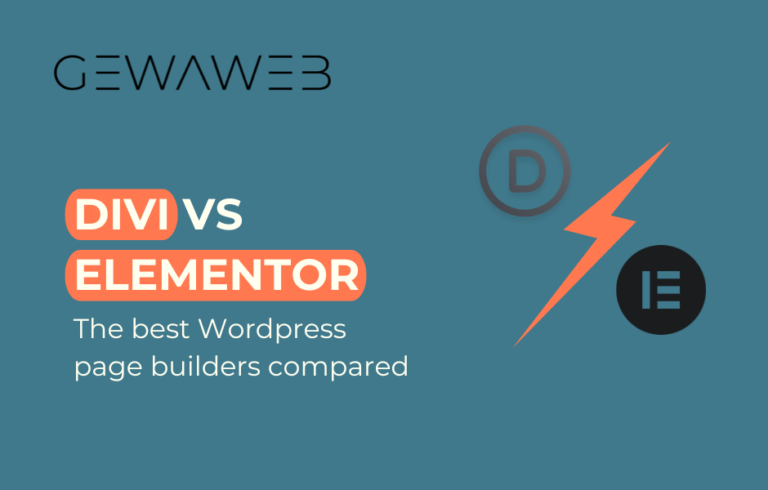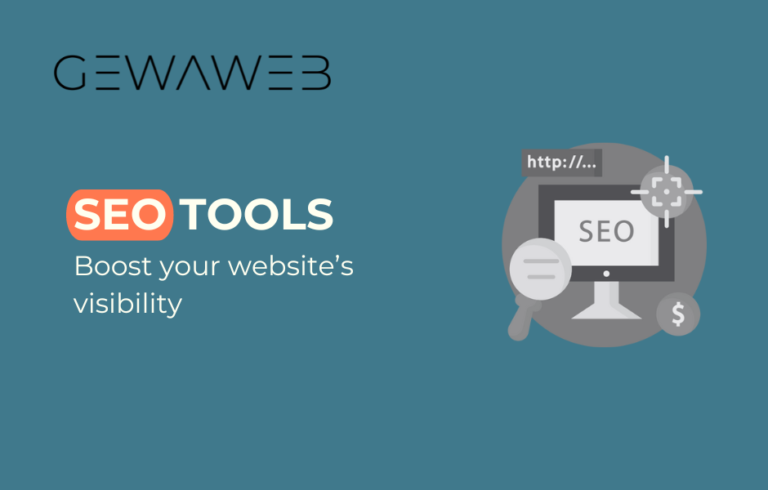Email marketing remains one of the most effective ways to engage with your audience, nurture leads, and drive conversions. However, the sheer number of tools available can make it overwhelming to choose the right one for your needs. In this guide, we will explore the best email marketing tools in 2024, breaking them down based on key features, pricing, and suitability for different business sizes and industries.
Why email marketing matters
Before diving into specific tools, it’s essential to understand why email marketing continues to dominate the digital marketing landscape:
- High ROI: For every $1 spent on email marketing, the average return is around $42. No other marketing channel consistently offers such impressive returns.
- Personalization and Automation: Modern email platforms allow you to segment audiences, personalize emails, and automate campaigns, saving time while ensuring targeted engagement.
- Data-Driven: Email marketing platforms provide robust analytics, enabling businesses to track open rates, click-through rates, and conversion metrics, fine-tuning strategies for better performance.
- Cross-Channel Integration: Most email tools now integrate seamlessly with other marketing channels, such as social media, CRM platforms, and content management systems.
With that in mind, let’s explore some of the top email marketing tools available today.
1. Mailchimp
Mailchimp is one of the most popular email marketing tools, widely used by businesses of all sizes. Initially known for its email marketing capabilities, Mailchimp has grown into a complete marketing platform that offers tools for website creation, CRM, and advertising.
Key Features
- User-Friendly Interface: Mailchimp is designed for beginners, with drag-and-drop email templates, customizable workflows, and an intuitive dashboard.
- Segmentation and Personalization: Easily segment audiences based on behavior, demographics, and interactions, and send targeted content for maximum engagement.
- Automation: Set up triggered emails based on customer behavior, such as abandoned carts, welcome emails, or post-purchase follow-ups.
- Analytics and A/B Testing: Get detailed insights into how your campaigns perform and optimize using A/B testing.
- Free Plan: Offers a free tier for businesses with up to 500 subscribers.
Pricing
- Free: Up to 500 contacts and 3,500 emails/month
- Essentials: Starts at $13/month for up to 500 contacts
- Standard: $20/month for advanced automation and reporting
- Premium: $350/month for more robust features
Best For
- Small businesses and startups that need a straightforward, all-in-one marketing tool.
- Beginners who need basic features but may scale up later.
2. ActiveCampaign
ActiveCampaign is a robust email marketing tool designed for businesses that need more advanced marketing automation and CRM integration. It is especially known for its powerful automation features.
Key Features
- Advanced Automation: ActiveCampaign allows you to create complex customer journeys, automating everything from onboarding to nurturing to retention with customizable workflows.
- CRM Integration: Integrates seamlessly with sales pipelines, helping you manage customer relationships within the same platform.
- Deep Segmentation: Allows you to build highly specific segments based on customer actions, website visits, purchase history, and more.
- SMS Marketing: Includes text message marketing alongside email campaigns for a multi-channel approach.
- Machine Learning: Uses predictive analytics to optimize send times and recommend personalized content.
Pricing
- Lite: Starts at $29/month for up to 1,000 contacts
- Plus: $49/month with additional CRM features
- Professional: $149/month for predictive sending and more automation options
- Enterprise: Custom pricing
Best For
- Medium to large businesses needing advanced marketing automation.
- Companies looking for a combined email marketing and CRM solution.
3. Sendinblue
Sendinblue is a versatile email marketing platform that offers a wide range of features at a highly affordable price. Known for its simplicity, Sendinblue is perfect for small to medium businesses looking for both email and SMS marketing capabilities.
Key Features
- Unlimited Contacts: Unlike many competitors, Sendinblue offers plans based on the number of emails sent rather than the number of contacts.
- Transactional Emails: Sendinblue excels at handling transactional emails like order confirmations and password resets alongside marketing emails.
- Email and SMS Marketing: Create coordinated email and SMS campaigns from a single platform.
- Real-Time Reporting: Track email performance, clicks, and customer activity with in-depth analytics.
- Marketing Automation: Automate your email sequences and segment your lists based on user actions, behavior, and preferences.
Pricing
- Free Plan: Up to 300 emails per day
- Lite: Starts at $25/month for 10,000 emails
- Premium: $65/month for 20,000 emails with advanced features
- Enterprise: Custom pricing
Best For
- Small businesses needing a budget-friendly email marketing solution.
- E-commerce sites requiring transactional email services.
4. Klaviyo
Klaviyo is an email marketing platform specifically designed for e-commerce businesses. It integrates seamlessly with e-commerce platforms like Shopify, WooCommerce, and Magento, offering deep customer insights and powerful automation tools.
Key Features
- E-commerce Integration: Direct integrations with Shopify, WooCommerce, and Magento, pulling in customer data such as purchase history, browsing behavior, and cart abandonment.
- Pre-Built Automation: Offers pre-built automation templates for e-commerce, such as abandoned cart reminders, post-purchase follow-ups, and win-back campaigns.
- Customer Segmentation: Create highly targeted campaigns based on a wide variety of e-commerce-related metrics.
- Advanced Analytics: Provides in-depth analytics and customer lifecycle reports.
- SMS Marketing: SMS marketing is also available, allowing you to reach your customers on multiple platforms.
Pricing
- Free: Up to 250 contacts and 500 emails/month
- Paid Plans: Starts at $20/month for up to 500 contacts
- Scalable Pricing: Prices scale with the number of contacts, making it cost-effective for larger lists.
Best For
- E-commerce businesses looking for deep customer insights and robust automation.
- Brands that rely on Shopify or WooCommerce and want to create personalized email marketing campaigns.
5. HubSpot email marketing
HubSpot is a full-featured marketing platform that includes email marketing as part of its ecosystem. If you’re already using HubSpot for CRM, sales, or content marketing, its email tool integrates seamlessly and can help streamline your marketing efforts.
Key Features
- CRM Integration: Native integration with HubSpot CRM makes it easy to track email engagement alongside customer data.
- Drag-and-Drop Builder: Create professional-looking emails with ease using a simple drag-and-drop editor.
- Smart Send: Optimize email send times based on user behavior and past interactions.
- Advanced Segmentation: Leverage data from HubSpot’s CRM to segment your email list based on customer behavior, demographics, and deal stage.
- Comprehensive Analytics: Detailed email performance tracking and ROI reporting.
Pricing
- Free: Up to 2,000 emails/month
- Starter: $50/month for more email functionality and HubSpot’s CRM features
- Professional: $800/month, including more advanced marketing features like A/B testing and marketing automation
- Enterprise: $3,200/month for complete marketing, sales, and service tools
Best For
- Medium to large businesses already using HubSpot for CRM and marketing.
- Teams that want an all-in-one solution combining email, CRM, and sales.
6. ConvertKit
ConvertKit is an email marketing tool built specifically for content creators, bloggers, and small online businesses. It focuses on ease of use, offering a streamlined interface with automation capabilities tailored for creators.
Key Features
- Creator-Centric: Built with content creators in mind, ConvertKit offers features like simple sign-up forms, tagging systems for segmentation, and email sequences.
- Visual Automation Builder: Easily design and visualize complex email workflows using the drag-and-drop automation builder.
- Tag-Based Subscriber System: Manage subscribers using tags, enabling more precise segmentation and personalization.
- Landing Pages: Create custom landing pages and forms to grow your email list.
Pricing
- Free: Up to 1,000 subscribers
- Creator: $29/month for up to 1,000 subscribers
- Creator Pro: $59/month with advanced reporting and subscriber scoring
Best For
- Bloggers, content creators, and online influencers who need simple yet powerful email marketing tools.
- Entrepreneurs looking to build personal brands or grow their online businesses.
7. Moosend
Moosend is an affordable and beginner-friendly email marketing tool, offering a wide range of features at a lower cost than most competitors. It’s great for startups and small businesses looking for budget-friendly options.
Key Features
- Drag-and-Drop Editor: Design emails easily with a drag-and-drop builder.
- Email Automation: Use pre-made templates for automated email sequences.
- Detailed Analytics: Track the performance of campaigns with comprehensive reporting.
- Affordable Pricing: Moosend offers a competitive pricing structure for small businesses.
- Template Library: Access a wide selection of pre-designed templates for various industries.
Pricing
- Free Plan: Unlimited emails to up to 1,000 subscribers
- Pro: Starts at $9/month, offering automation and landing pages
- Enterprise: Custom pricing for more advanced features
Best For
- Startups and small businesses on a budget.
- Companies that need a simple, effective, and affordable email marketing tool.
Conclusion
Choosing the right email marketing tool depends on your business size, industry, and marketing needs. If you’re a beginner or small business owner, Mailchimp or Sendinblue offers a user-friendly experience at a low cost. ActiveCampaign and Klaviyo are perfect for businesses seeking advanced automation and e-commerce integration. For content creators, ConvertKit is tailor-made, while HubSpot is ideal for those already leveraging its CRM.
In the following years, email marketing continues to be a cornerstone of successful digital marketing strategies. With the right tool, you can streamline your marketing efforts, increase engagement, and drive growth for your business.



